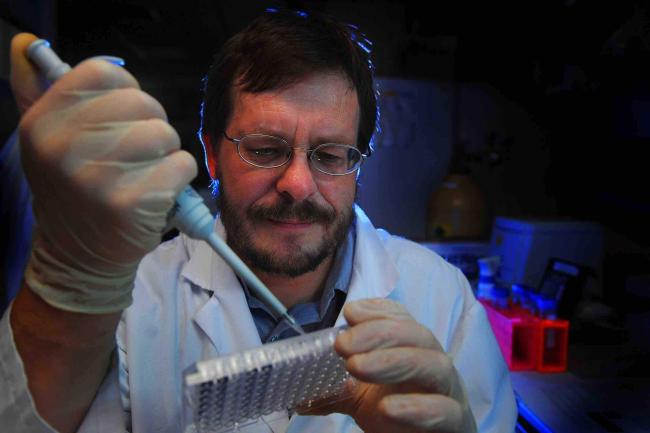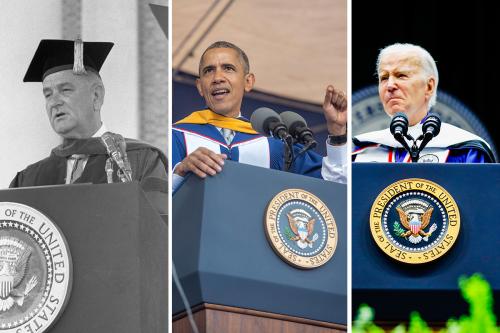WASHINGTON (May 12, 2020) – Howard University has galvanized its research faculty to battle COVID-19. Howard University is a leading research-oriented university and boasts a large and experienced research faculty who are exploring the pandemic from various areas of expertise.
“Howard University is committed to using our resources to support and address the challenges we face as a nation related the COVID-19 pandemic,” said Howard University President Wayne A. I. Frederick. “Our researchers are diligently working to find viable, scientific solutions, which aligns with our strategic plan to inspire new knowledge and serve the community.”
To tackle the COVID-19 crisis, Howard University has added a number of research initiatives to its roster, some of which leverage existing research relationships with local government and health organizations, particularly the District of Columbia and the National Institutes of Health (NIH). Some of the major scientific initiatives at Howard related to the pandemic include bolstering lab resources to expedite coronavirus at Howard University Hospital, providing mental health resources to first responders, examining the pandemics impact on the drug-supply system, and research into the role that genetics may play in COVID-19 susceptibility and severity.
Expedited COVID-19 Hospital Testing
Sergei Nekhai, Ph.D., a professor in the College of Medicine and deputy director of the Howard University Center for Sickle Cell Disease, is pursuing a new lab project that would expand coronavirus testing capacity and enhance the turnaround time for testing performed at Howard University Hospital. Dr. James G. Taylor, director of the center, has stressed the importance of testing sickle cell disease patients, who may be at a higher risk of contracting COVID-19 due to their frequent need for health care visits in hospital settings. The College of Medicine and the hospital have already identified new lab space where the testing would be performed. Separately, Center for Sickle Cell Disease is also pursuing a NIH grant to study the susceptibility of the disease on sickle cell patients.
Genetics
The Genome Center at the Howard University College of Medicine is working on a research investigation with NIH to learn more about genetic susceptibility and COVID-19. Last year, Howard University and NIH launched a research investigator development pilot program and pledged to find ways for greater collaboration on scientific projects.
Celia J. Maxwell, M.D., infectious disease physician and associate dean for research at Howard University College of Medicine, said she doubts that there is a genetic link to COVID-19. But she added that it’s ultimately important that scientists rule it out with proper evidence.
“We don’t know very much about any genetic susceptibility because it’s a fairly new disease,” Dr. Maxwell said. “Many African Americans suffer from hyper-tension, diabetes, heart disease, or asthma. These conditions put you at greater risk and we’ve seen them in our community for a long time. COVID-19 is shining a spotlight on the impact of poverty on African Americans, as well as the impact of poverty on other groups.”
COVID-19 and Behavioral Health
Thomas A. Mellman, M.D., professor of psychiatry and director of Center for Clinical and Translational Research at the Howard University College of Medicine, and Tyish Hall Brown, Ph.D., child and adolescent psychologist in the College of Medicine, are collaborating with District of Columbia Department of Behavioral Health to bolster local mental health services related to the COVID-19 crisis. The District has asked Howard University to provide mental health support to medical and other front-line workers and for people with anxiety, depression and post-traumatic stress disorder.
“There’s a lot of fear and worry about infections and its health consequences,” Mellman said. “There’s been a disruption of normal routines and social rhythms. For many there has been financial hardship. What we are encouraging for most people are forms of phycological first-aid that respects their resilience and encourages social support. But a minority of the population will develop more significant mental health problems.”
COVID-related Medicine Shortages
Howard University chemist Joseph Fortunak, Ph.D., is examining the cost of manufacturing medicines as it relates to the COVID-19 pandemic. Fortunak is currently working with state governments and world organizations on ways to ensure hospital systems maintain supplies of critical drugs to fight COVID-19. Many critical drugs are in short supply such as midazolam, an example where overseas production of active ingredients have been shut down. Even staples such as acetaminophen and ibuprofen, which are also produced overseas, have been impacted.
“COVID-19 is emphasizing to the U.S. government that we can be totally out of drugs and have many thousands of people die because we can’t source simple drug ingredients,” Fortunak said. “We are running out of these drugs and we need to secure the supply for the U.S.”
(Pictured above: Dr. Sergei Nekhai, Ph.D., a professor in the College of Medicine, is among Howard University researchers addressing COVID-19)
###
About Howard University
Founded in 1867, Howard University is a private, research university that is comprised of 13 schools and colleges. Students pursue studies in more than 120 areas leading to undergraduate, graduate and professional degrees. The University operates with a commitment to Excellence in Truth and Service and has produced one Schwarzman Scholar, three Marshall Scholars, four Rhodes Scholars, 11 Truman Scholars, 25 Pickering Fellows and more than 70 Fulbright Scholars. Howard also produces more on-campus African-American Ph.D. recipients than any other university in the United States. For more information on Howard University, visit www.howard.edu.
For media inquiries contact: Sholnn Freeman, sholnn.freeman@howard.edu





